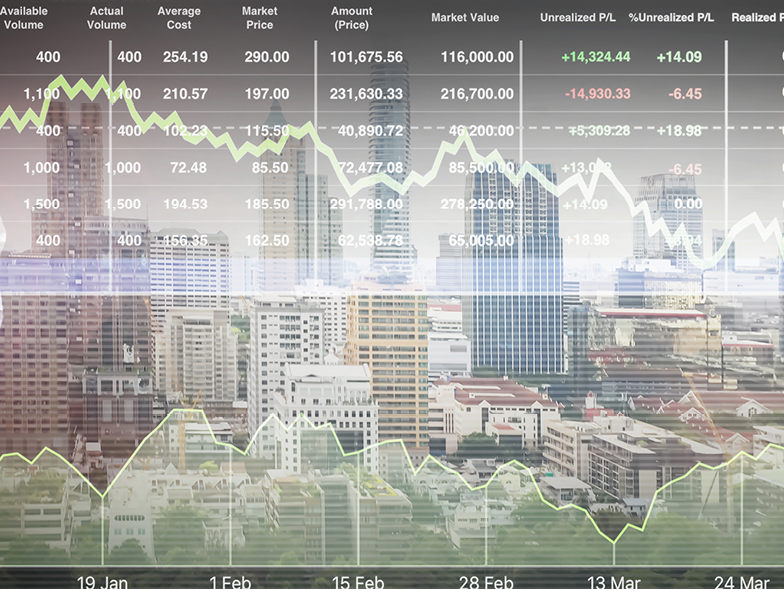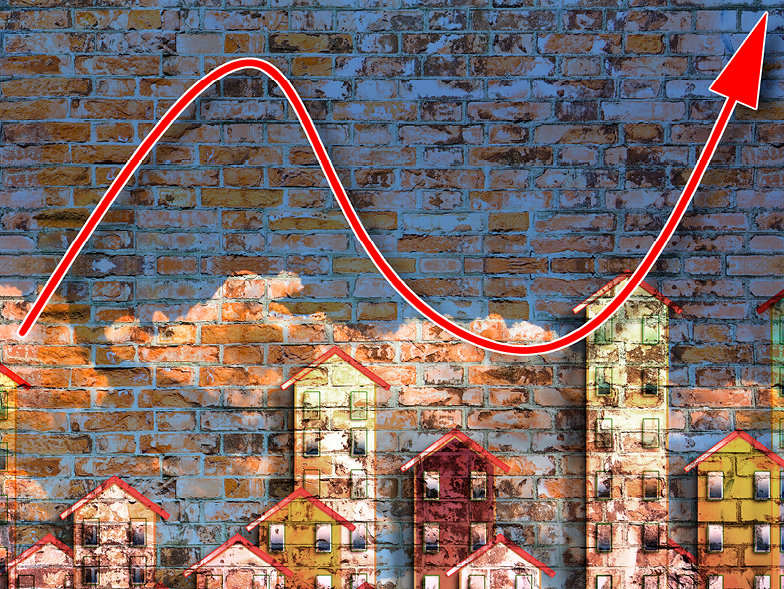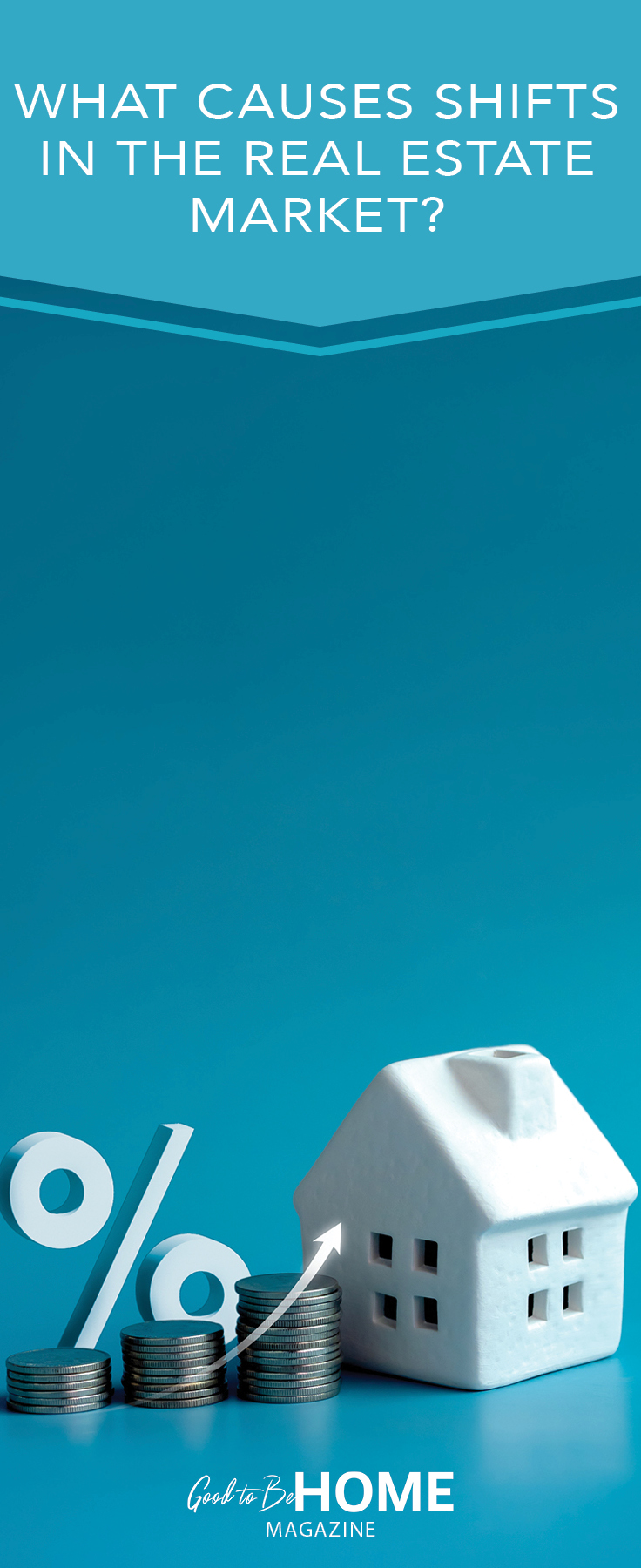What Causes Shifts in the Real Estate Market?
Just like interest rates rise and fall, so does the real estate market. These shifts, driven by real estate cycles, are categorized into phases: recovery, expansion, hyper-supply, and recession. Because these cycles are unpredictable, several factors within each stage influence how long they will last. Understanding how and why these shifts happen can help you decide if it’s the right time to buy or sell.

The four phases of the real estate cycle
Driven by times of expansion and contraction, the real estate cycle can cause the real estate market to shift significantly. As a result, home prices, inventory levels, interest rates, mortgage availability, and the ability to invest in real estate are all impacted.
Recovery
The recovery phase is when the market is only just starting to bounce back but still has many of the same characteristics of a recession. This includes high unemployment rates, low demand for goods, and home prices are more affordable. As a result, this can make it an opportune time to purchase a home.
Expansion
During the expansion phase, businesses are growing and hiring, resulting in lower unemployment rates, increased consumer spending, higher property values and rental rates, and an uptick in demand for housing.
Hyper-supply
Economists will measure and scrutinize vacancy rates to understand which phase of the real estate cycle the market is in. In the hyper-supply phase, an abundance of vacancies may indicate an economic shift, As the demand for housing begins to drop, so do prices. And when pricing drops, purchasing a home becomes possible.
Recession
When the economy begins to contract, most industries have an overall economic pullback. As a result, businesses reduce or limit production, resulting in job layoffs; consumers conserve their money and spend less on goods and services, inventory levels creep up, and vacancy levels increase. In addition, during a recessionary period, interest rates rise to control inflation, making it difficult for buyers to purchase a home.

Economic influencers
Within each phase of the real estate cycle are several factors that impact a person’s ability to purchase or sell a home. These include economic growth, interest rates, consumer confidence, unemployment, government policies, subsidies, and demographics.
The economy
After an economic expansion, the economy reaches its growth potential and begins to contract; economists refer to the real estate cycle as having peaked, and demand for housing subsequently decreases, leading to a sluggish real estate market.
Unemployment
If unemployment rises, people may fear losing their jobs, discouraging them from purchasing a home. Conversely, a low unemployment rate means people are earning an income and will more likely be able to afford a home.
Consumer confidence
If the state of the economy is high and there is consumer confidence and job security, they will likely feel comfortable taking out a home loan, especially if the real estate market outlook is positive. However, if the market is wavering, it may deter people from purchasing a home, directly affecting the next phase of the real estate cycle.
Interest rates and affordability
Because interest rates are constantly changing, the demand for housing will follow suit. So as interest rates increase, affordability drops, and the market shrinks. But when interest rates fall, buyers are incentivized to buy, driving up the demand for housing.
Government policies and subsidies
Legislation can also affect the different phases of the real estate cycle and significantly impact the housing market. For example, the government may offer tax credits, deductions, a first-time homebuyer’s tax, and other subsidies to help temporarily stimulate the demand for real estate.
Demographics
Population shifts can directly affect real estate market changes; the impact can be enormous, depending on the community’s location and population. For example, baby boomers, born between 1946 and 1964 (now ranging in age from fifty-nine to seventy-seven), are entering retirement age. As a result, they are downsizing their homes and moving into smaller spaces such as active adult or assisted living communities. In addition, this generation’s demand for second homes is becoming popular as they prepare for retirement, driving up inventory levels.
Consult with your real estate agent to understand how the real estate cycle can affect your purchasing or selling decisions.


















